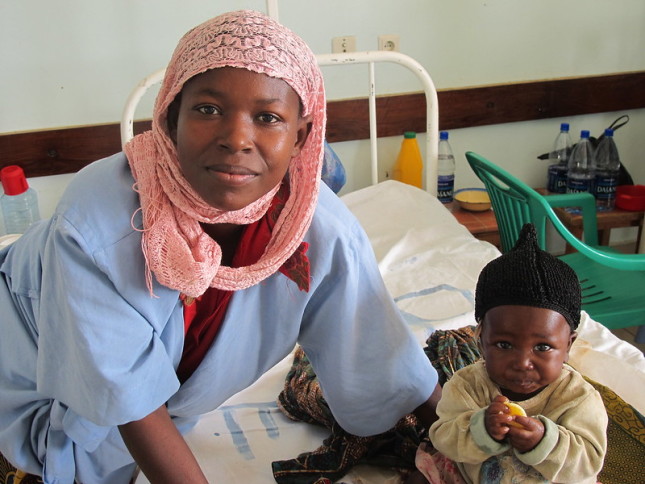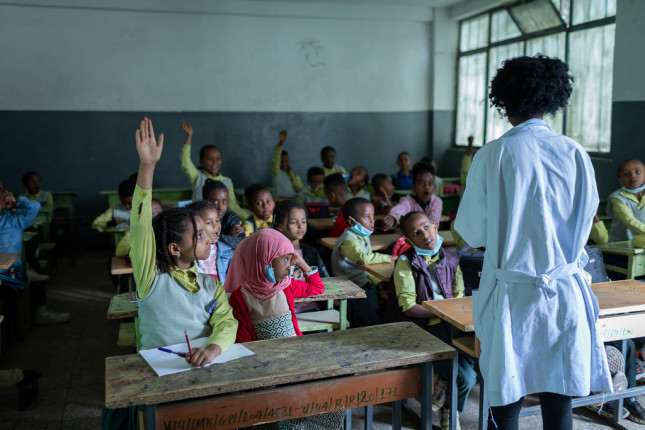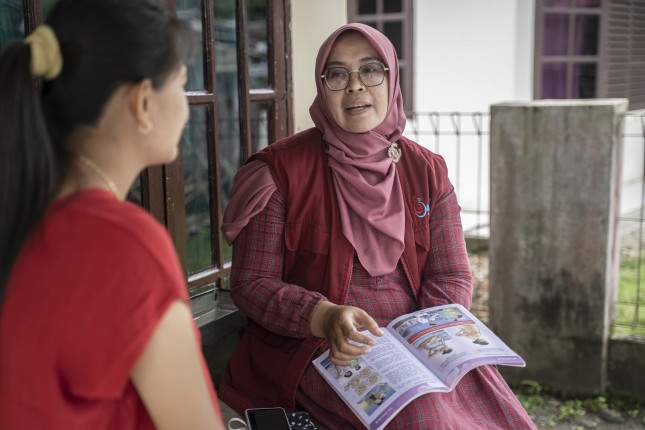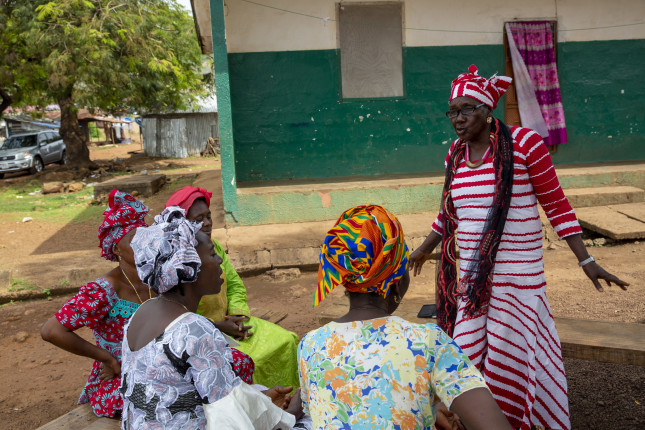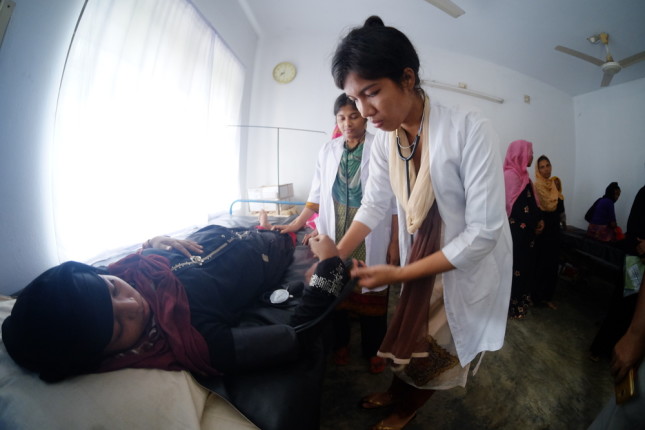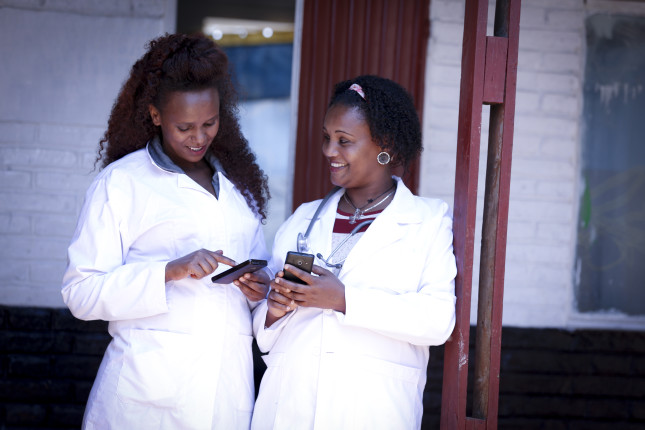-
Cancer and the Kali Yuga: Gender, Inequality, and Health in South India (Book Launch)
›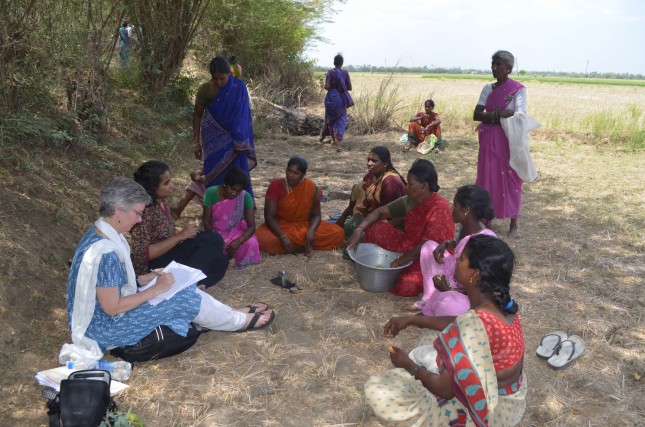
Under the narrow shade of our umbrellas, a community health worker from a local NGO and I walked along a dirt path to the edge of some paddy fields in a village in Tamil Nadu, South India in the summer of 2015. There we met a group of Dalit (oppressed-caste) women who were squeezed together under a clump of trees on a small strip of raised land between two fields.
The summer of 2015 was one of the hottest on record in South India at that time, with temperatures consistently above 40ºC (104ºF) every day. Rains which should have begun to arrive had not come by mid-July. These women were hoping to be called for daily agricultural wage labor in the fields, and they had taken refuge under the shade while they waited. They had been waiting all morning with no work available; it had been the same for several days because there was a drought and the crops were failing.
-
Top 5 Dot-Mom Guest Contributor Posts in 2022
›
In 2022, the Dot-Mom column published several pieces from expert guest authors from the greater maternal and reproductive health community. In our top read guest contributor piece of the year, Susie Jolly examined the role of colonialism in sexuality education globally. Jolly highlighted examples where sexual health knowledge is built on unethical medical research carried out on racialized people, such as the study of untreated syphilis among Black men in the United States. Sexuality educators, especially those placed in the Global North, have a responsibility to work to decolonize their work. Jolly suggests supporting resources led by marginalized people, critically examining colonialism’s influence in the understanding of sexuality, and shifting the dynamics of who decides on content to lend more weight to non-Western expertise and young people learning from their own experiences.
-
Mobile Clinics and Mental Health Care: The NGO Response to Ukraine’s Health Crises
› The war in Ukraine is not only displacing millions, straining the economy, and ravaging infrastructure. It’s also creating a mounting health crisis. In this week’s New Security Broadcast, ECSP’s Director Lauren Risi hears from Ambassador Daniel Speckhard and Dr. Mariia Dolynska about the health impacts created by the war in Ukraine and what is still needed to strengthen the health system—as well as what one NGO is doing to deliver healthcare in the embattled nation.
The war in Ukraine is not only displacing millions, straining the economy, and ravaging infrastructure. It’s also creating a mounting health crisis. In this week’s New Security Broadcast, ECSP’s Director Lauren Risi hears from Ambassador Daniel Speckhard and Dr. Mariia Dolynska about the health impacts created by the war in Ukraine and what is still needed to strengthen the health system—as well as what one NGO is doing to deliver healthcare in the embattled nation. -
Meeting Africa’s Demographic Challenge
›
Often cast into the backwaters of U.S. foreign policy, sub-Saharan Africa now looms large as the Biden Administration grapples with a wide range of global challenges. President Biden will soon host the upcoming Africa Leaders’ Summit in Washington, that acknowledges the U.S. government must do much more in Africa in order to advance U.S. interests and global prosperity.
-
Environmentalists Need To Talk About Population Growth. Here’s How.
›
On November 15, the world population is projected to reach 8 billion people. As we approach that milestone, there’s no denying that our rapidly growing human population also places extraordinary pressure on the environment. The human population has doubled in the last 50 years, while wildlife populations have been cut in half.
-
Turning Power on its Head: A Meaningful Shift Toward Localization
›
Of COVID-19’s many lessons, one is most critical to our collective next steps:
Business as usual in global health is no longer possible.
The pandemic exposed weaknesses in health systems across the world, and particularly in the delivery of equitable, high-quality reproductive, maternal, newborn, adolescent, and child health (RMNCAH) services. It also reinforced that effectively addressing these challenges requires rapid, responsive approaches driven and owned by countries and local institutions.
-
Midwives in Humanitarian Crises Need Recognition and Investment
›
More than 60 percent of preventable maternal deaths and 45 percent of newborn deaths take place in countries affected by recent conflict, natural disaster, or both. Yet as Sarah B. Barnes, Project Director of the Maternal Health Initiative, observed at a recent event hosted by the Wilson Center and UNFPA, in collaboration with the Inter-agency Working Group on Reproductive Health in Crisis (IAWG) and White Ribbon Alliance, “the leading causes of both maternal and newborn death occurring in humanitarian settings are considered to be preventable if managed by skilled providers and adequate resources.”
-
The Safe Delivery App Puts Better Maternal and Newborn Outcomes in the Palms of Health Workers’ Hands
›
Reducing maternal mortality is key to promoting population health. It is also a main priority of the UN General Assembly’s Sustainable Development Goals. And the reasons for concern are clear. Globally, 800 women and 6,500 infants die during pregnancy and birth every day. More than 94 percent of these deaths occur in low-and-middle-income countries (LMICs).
Showing posts from category health systems.


